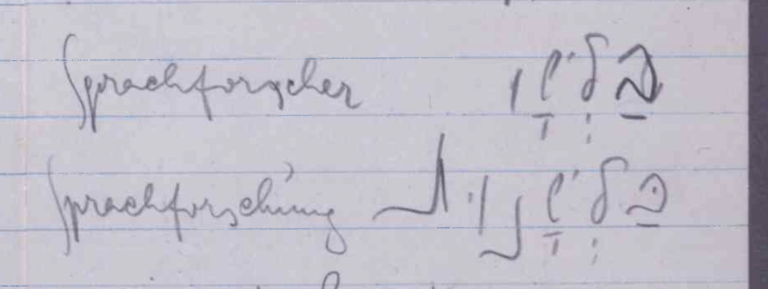Exhibition in the Voltaire Room, Taylor Institution Library
29 May to 13 June 2024
Who was Kafka? It is hard to escape Kafka at the moment in Oxford, with the Kafka24 celebrations marking 100 years since his death, on 3 June 1924. He is one of the most significant German-language authors of the 20th century, and the term Kafkaesque has become widely used to describe situations that are bewilderingly complex or bizarre, based on some of his works. The Taylorian owns some first editions of his work, which are on display in our exhibition.
Kafka was multilingual, reading French, Greek, Czech and learning Hebrew and Italian. He recorded some of his language learning techniques in notebooks, currently being studied by Masters students undertaking the History of the Book method option.
Kafka’s notebooks demonstrate both regular study and routine (lists of vocabulary laboriously copied out) and eclectic combinations of phrases. His writing frequently breaks out of the ordered rows of terms, with undisciplined-appearing scrawl. What was he learning, why, and how did he go about it?
The exhibition moves from considering Kafka’s language-learning notebooks to a wider examination of how languages have been, and continue to be studied. Looking at the theme of transport through the ages, we show how this has been taught, via historical language-learning materials held by the Taylorian.
The exhibition looks at different strategies that current students and staff are using to learn languages – some more successfully than others! There are games, songs, flash cards, toys, stationery and lots of good intentions. What strategies do you use to learn languages? Do they work?
Do contribute your suggestions, as Master’s student Cassidy Serhienko attempts to learn German from scratch using strategies suggested by Taylorian readers! You can follow her journey @historyofthebookoxford on TikTok, Instagram and Twitter/X under the hashtag #KafkasLanguages24
Read Clara Busch’s account of how she worked on Kafka’s notebooks
Header image: Entries for ‘Sprachforscher’ & ‘Sprachforschung’ and their Hebrew equivalents בַּלְשָׁן and בַּלְשָׁנוּת from Kafka’s notebook Bodleian Library MS. Kafka 33, fol. 15v
